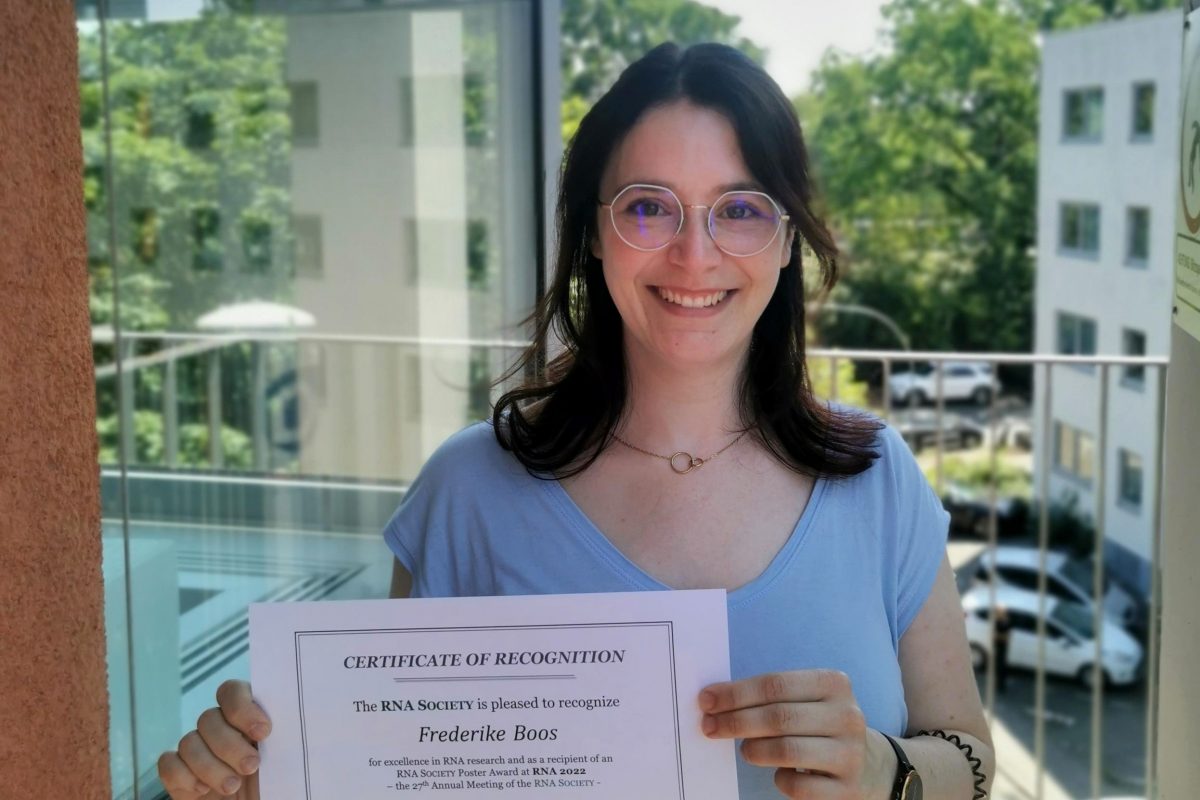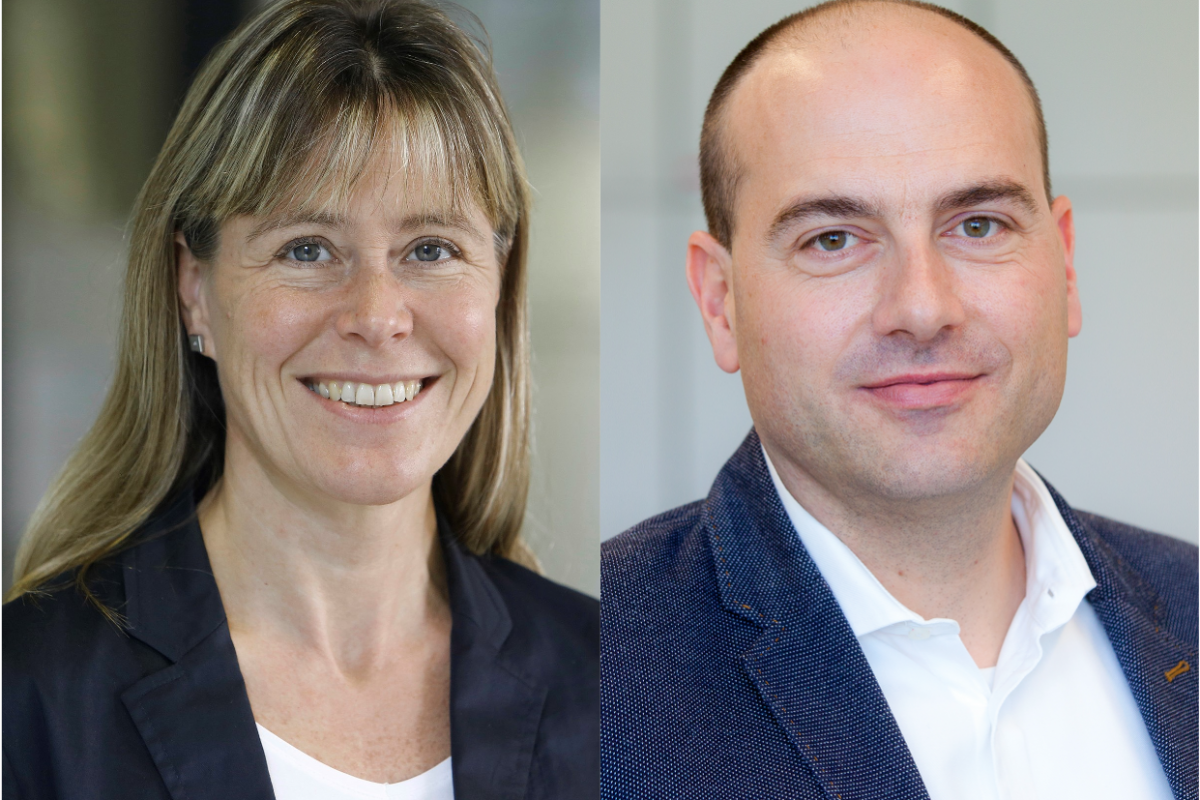Kirchhof, L., Fouani, Y., Knau, A., Aslan, G.S., Heumüller, A.W., Wittig, I., Müller-McNicoll, M., Dimmeler, S., Jaé, N. (2022) The G3BP1-UPF1-Associated Long Non-Coding RNA CALA Regulates RNA Turnover in the Cytoplasm. Non-Coding RNA, 8, 49 View
New Publication
Jones A.N., Walbrun, A., Falleroni, F., Rief, M., Sattler, M. (2022) Conformational Effects of a Cancer-Linked Mutation in Pri-miR-30c RNA. Journal of Molecular Biology, 167705 View
New Publication
Kokot KE, Kneuer JM, John D, Rebs S, Möbius-Winkler MN, Müller M, Andritschke M, Gaul S, Sheikh BN, Haas J, Thiele H, Leuschner F, Dimmeler S, Streckfuß-Bömmecke K, Meder B, Laufs U, Boeckel JN (2022) Reduction of A-to-I RNA editing in the failing human heart regulates formation of circular RNAs. Basic Research in Cardiology, 117, 32 View
Frederike Boos receives Poster Award at RNA 2022
Congratulations to Frederike Boos, a PhD student from Goethe University Frankfurt for receiving the RNA Society Poster Award at RNA 2022, 27th Annual Meeting of the RNA Society, in Boulder (Colorado). She was presenting her research within the SFB project A04 under the supervision of Prof. Ralf P. Brandes at the Institute of Cardiovascular Physiology.
Stefanie Dimmeler and Thomas Thum awarded ERC Advanced Grants
We are proud that Stefanie Dimmeler and Thomas Thum from TRR 267 have been selected by The European Research Council (ERC) to receive two of their prestigious ERC Advanced Grants. Congratulations!
Neuroheart (Stefanie Dimmeler): As aging is a major risk factor for cardiovascular disease, knowledge about mechanisms underlying age-related changes is still scarce. In this project the unique interaction of nerves and vessels in the aging heart will be studied, which likely contributes to the development of age-related diseases of the heart muscle. The long-term goal is to lay the foundation for the development of therapies that contribute to healthy aging of the heart. Stefanie Dimmeler receives the grant already for the third time.
REVERSE (Thomas Thum): Heart failure is one of the most common causes of death worldwide. In Germany, around four million people suffer from cardiac insufficiency. Besides others, remodeling processes in the heart muscle lead to this disease. These processes, inter alia, can be triggered by side effects of chemotherapy. So far, there is no treatment option that can stop or even reverse the course of the disease. Professor Dr. Dr. Thomas Thum and his team are now looking for such a strategy within the research project REVERSE.
Please find more information about this important topic in the entire article: https://www.mhh.de/en/presse/mhh-insight/startseite-news-detailed-view/mhh-researcher-wants-to-stop-harmful-effect-of-chemotherapy-on-heart-muscle



